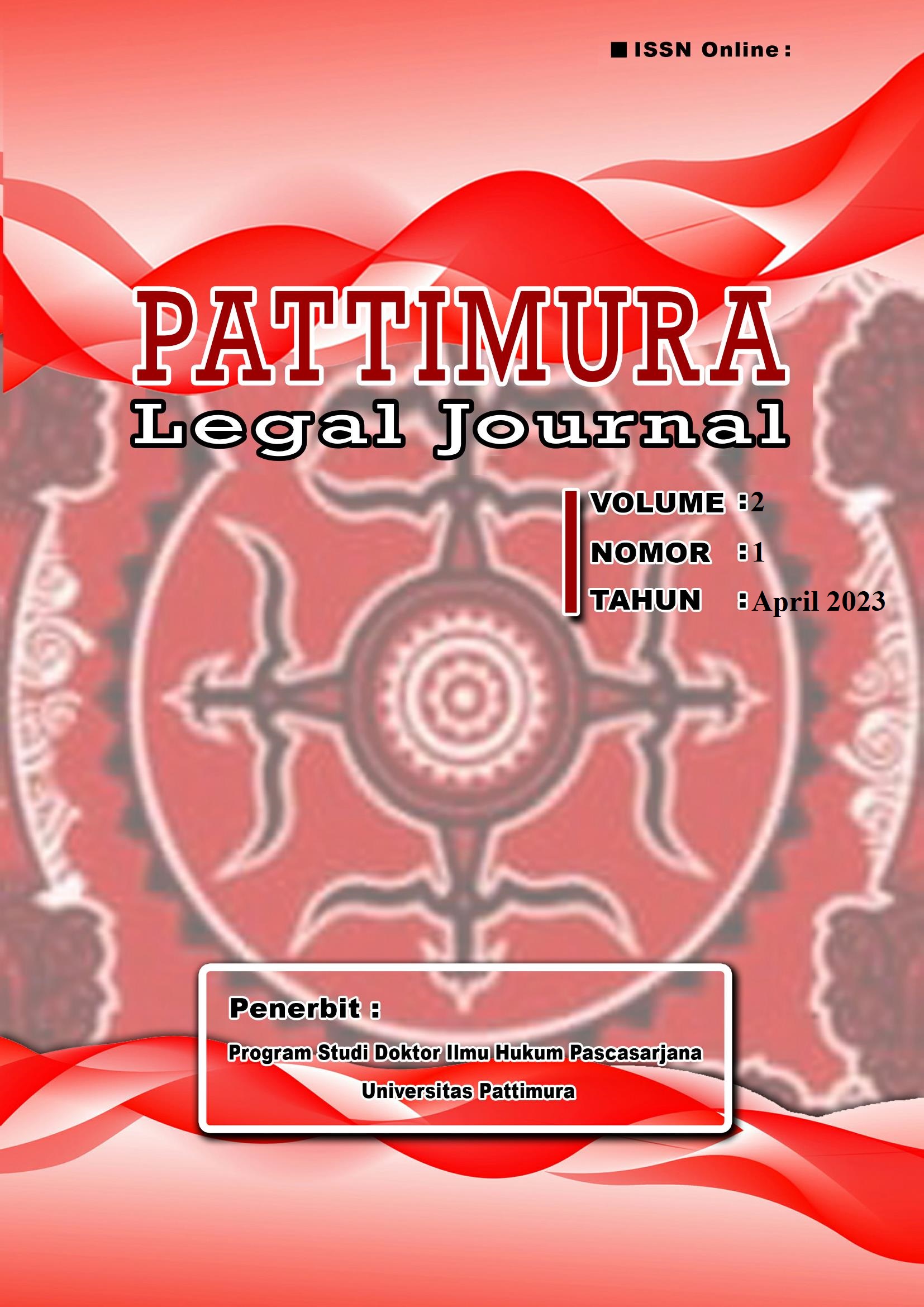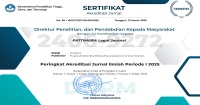Perlindungan Hukum Bagi Hak-Hak Tenaga Kerja Dalam Pembagian Hutang Harta Pailit
Abstract
Introduction: Differences in legal position related to the division of bankruptcy between creditors holding collateral and labor rights in the of the Bankruptcy Law and in other laws and regulations will actually create legal uncertainty in providing guarantees of protection to labor rights and cause conflicts between legal norms.
Purposes of the Research: To find out the various provisions of laws and regulations governing labor rights for the division of bankrupt debts and synchronization between Law No. 37 of 2004 concerning Bankruptcy with other laws and regulations in regulating labor rights to the division of bankrupt and the application of legal protection of labor rights to the division of bankrupt debts.
Methods of the Research: The type of research used is normative juridical research. The nature of this research is descriptive. The data source used is secondary data. The nature of this research is descriptive analytical research and drawing conclusions using deductive methods.
Results Originality of the Research: The research results show that the synchronization of Law Number 37 of 2004 concerning Bankruptcy with other provisions in the interpretation of the law has been assigned on the decision of the Constitutional Court Number 18/PUU-VI/2008 and 67/PUU-XI/2013 that the payment of labor wages must take precedence over the bills of the state and separatist creditors while severance and other rights are granted after the compliance of the invoices of separatist creditors. In addition, the legal position for labor is determined by the Law and the decisions of the Constitutional Court as a preferred creditor of the proceeds of the sale of the boedel and its enforcement of the law refers to the lex specialis derogat lex generalis while take to consideration other term governing the rights of creditors. Legal implications to bankruptcy companies, the compliance of labor rights is determined by the proceeds of the sale of boedel which is based on the provisions in Article 95 of Law No. 11 of 2020 about Omnibus Law as amended from the provisions regulated in Law No. 13 of 2003 about Manpower, Article 49 and Article 50 of Government Regulation No. 36 of 2021 about Wages.
Downloads
References
Jurnal
Hidayat, Atang. “Hak Tenaga Kerja Pada Perusahaan Yang Dinyatakan Pailit.” Wacana Paramarta: Jurnal Ilmu Hukum 16, no. 1 (2017): 23–32.
Buku
Agusmidah, and Dkk. Bab-Bab Tentang Hukum Perburuhan Indonesia. Edited by Guus Heerma van Voss and Surya Tjandra. Denpasar: Pustaka Larasan, 2012.
Subhan, M. Hadi. Hukum Kepailitan Prinsip, Norma, Dan Praktik Peradilan. Jakarta: Kencana Prenada Media Group, 2008.
Online/World Wide Web, Disertasi/Tesis/Skripsi, Dan Lain-Lain
Ady. “Upah Buruh Harus Didahulukan Dalam Kepailitan.” hukumonline.com, 2014. https://www.hukumonline.com/berita/a/upah-buruh-harus-didahulukan-dalam-kepailitan-lt5412a9f00ba43/.
Annisha, Vidya Meisyal. “Analisis Hukum Terhadap Pemenuhan Hak Kreditor Separatis Dan Upah Pekerja Dalam Kepailitan,” 2014.
Nasima, Imam, and Eryanto Nugroho. “Pembayaran Upah Buruh Dalam Proses Kepailitan.” hukumonline.com, 2008. https://www.hukumonline.com/berita/a/pembayaran-upah-buruh-dalam-proses-kepailitan-hol19037/.
Copyright (c) 2023 Edy Sony, Nugrah Gables Manery (Author)

This work is licensed under a Creative Commons Attribution-NonCommercial 4.0 International License.
Authors who publish their manuscripts in this Journal agree to the following conditions:
- The copyright in each article belongs to the author, as well as the right to patent.
- Authors are able to enter into separate, additional contractual arrangements for the non-exclusive distribution of the journal's published version of the work (e.g., post it to an institutional repository or publish it in a book), with an acknowledgment of its initial publication in this journal.
- Authors are permitted and encouraged to post their work online (e.g., in institutional repositories or on their website) prior to and during the submission process, as it can lead to productive exchanges, as well as earlier and greater citation of published work.
- Authors have the right to self-archiving of the article (Author Self-Archiving Policy)






















